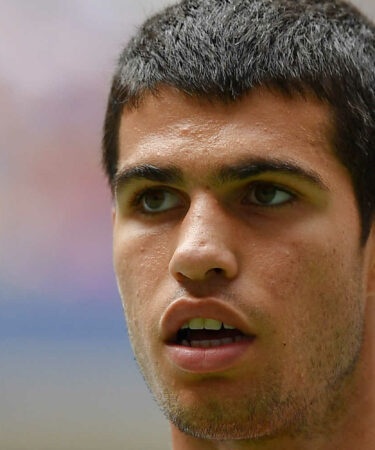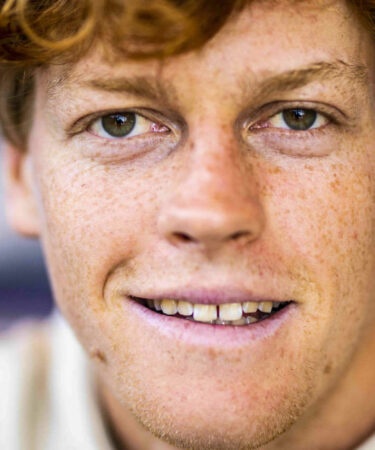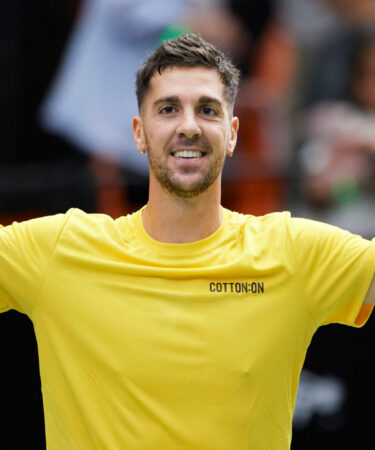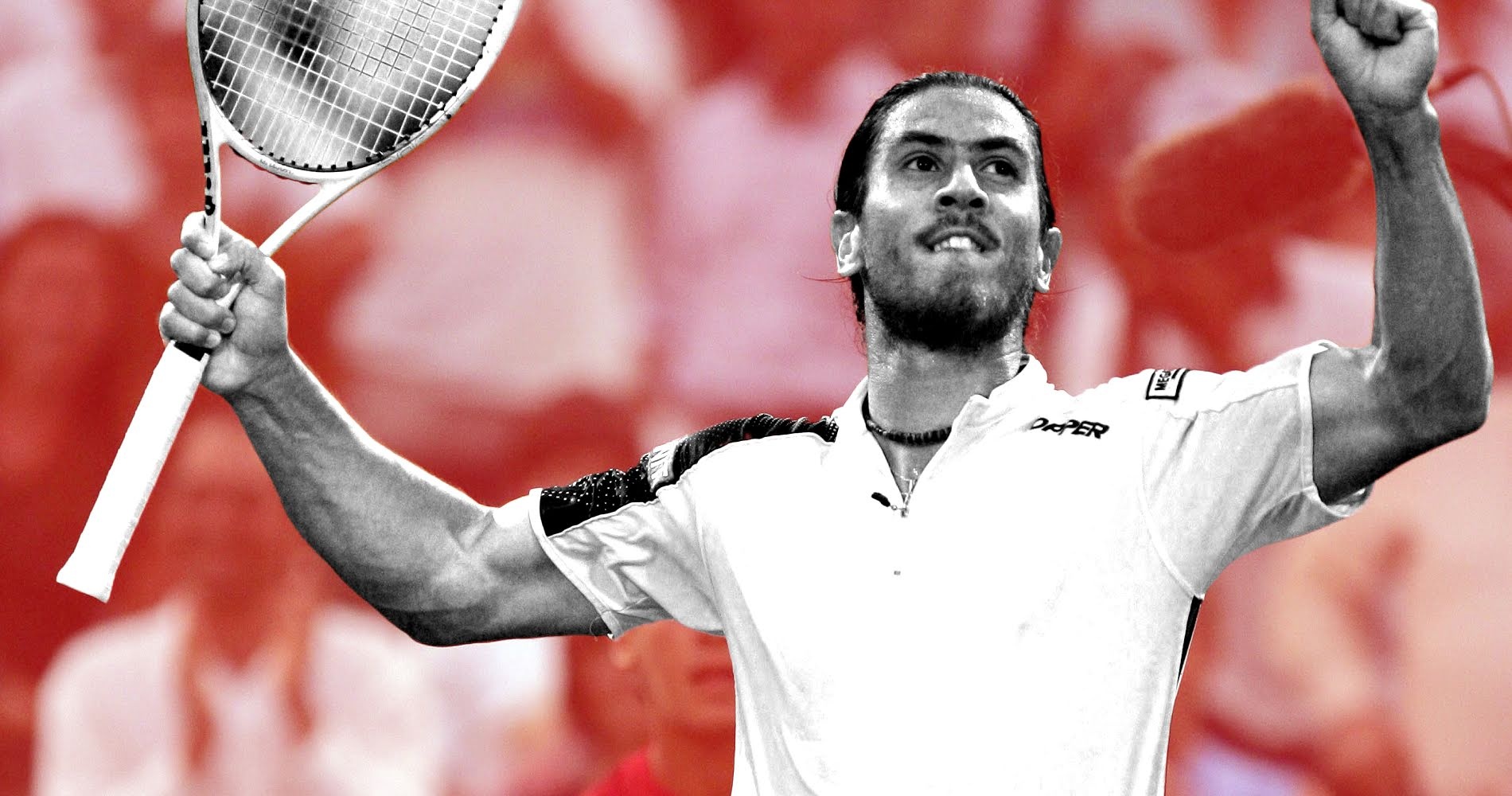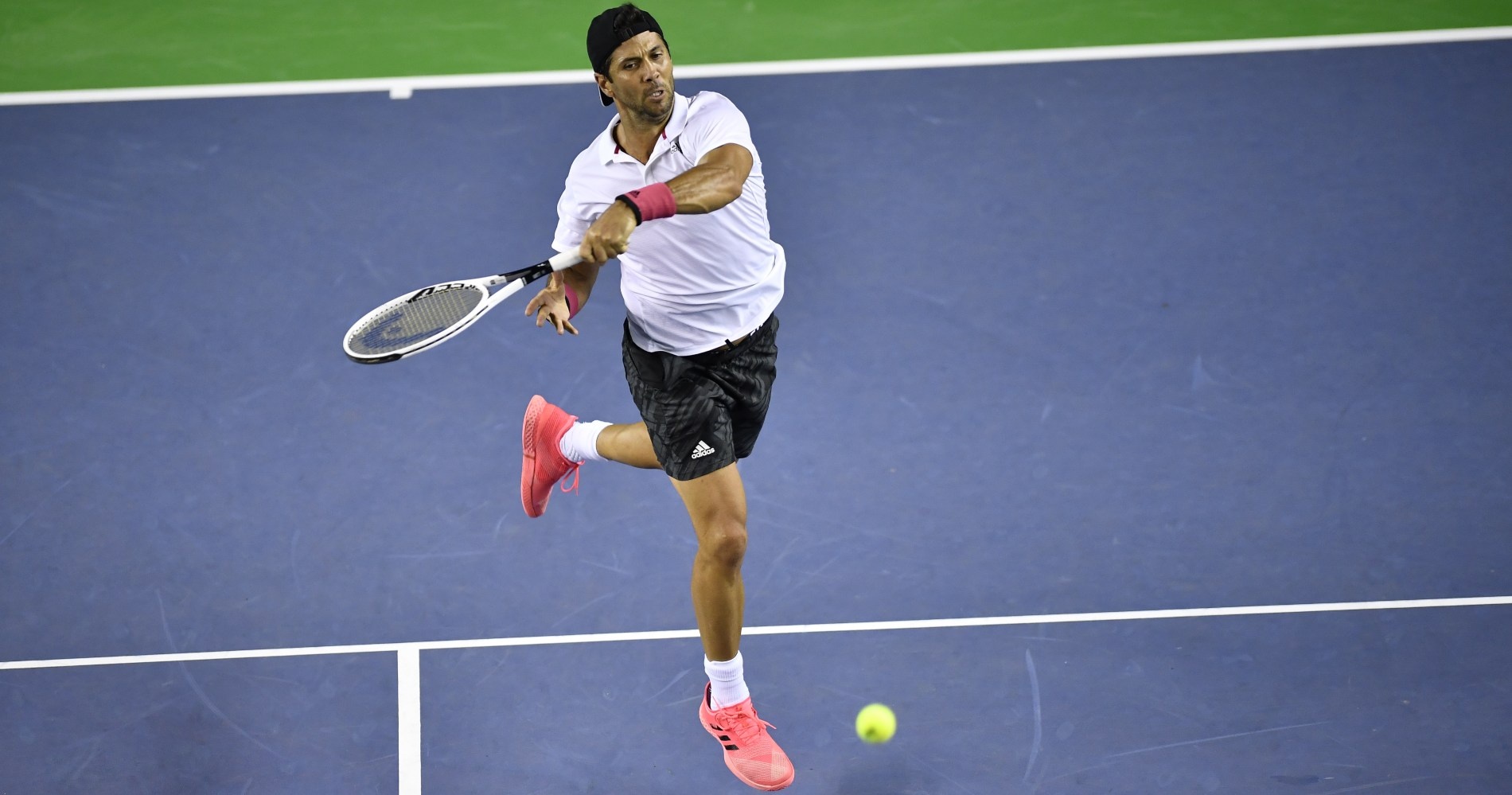Kokkinakis: Davis Cup every two years and shortening season would help extend careers
The Australian acknowledges the fact that many players play exhibitions but says more can be done to help them stay healthy and play longer
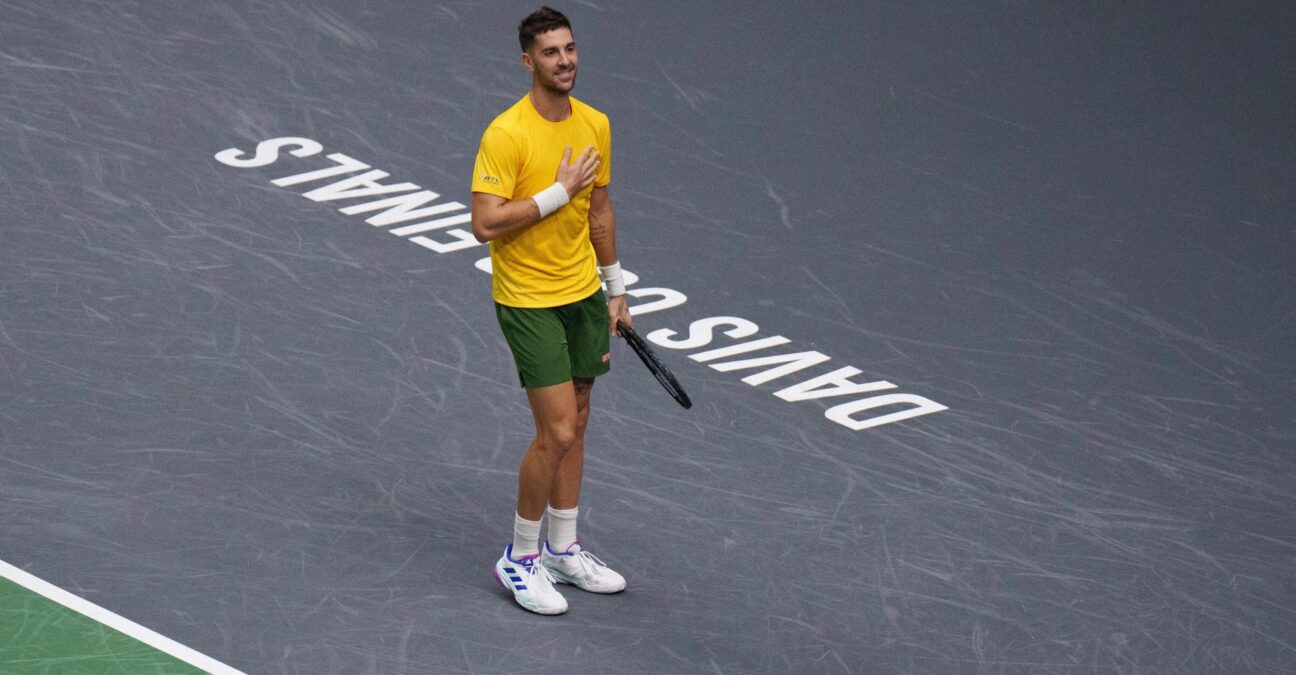 Zuma / Panoramic
September 12, 2024, Valencia, Valencia, SPAIN: Thanasi Kokkinakis of Australia reacts after winning against Jakub Mensik of Czech Republic during the Davis Cup 2024, Group B, tennis match played between Australia and Czech Republic at Fuente de San Luis on September 12, 2024, in Valencia, Spain. || 296776_0042 2024 PRESS spain sport tennis zagency zlast24 zselect ZSPORT ZTENNIS Zuma ZUMAPRESS.com zwire
Zuma / Panoramic
September 12, 2024, Valencia, Valencia, SPAIN: Thanasi Kokkinakis of Australia reacts after winning against Jakub Mensik of Czech Republic during the Davis Cup 2024, Group B, tennis match played between Australia and Czech Republic at Fuente de San Luis on September 12, 2024, in Valencia, Spain. || 296776_0042 2024 PRESS spain sport tennis zagency zlast24 zselect ZSPORT ZTENNIS Zuma ZUMAPRESS.com zwire
Australian Thanasi Kokkinakis says shortening the season and playing Davis Cup over a two-year period could help extend players’ careers.
The 28-year-old has had more than his share of injuries but returned to the world’s top 100 in 2024 and is closing in on his career-high ranking of 65.
In recent weeks, the length and intensity of the calendar has been a major talking point, with several leading players, including Carlos Alcaraz, Jannik Sinner and Stefanos Tsitsipas, saying something needs to be done to help players avoid serious injury. Kokkinakis agrees.
“For me, it’s it’s very long, especially being from Australia,” he said, of the season, which runs from January through to November. “It’s very tough. Unless you have a base somewhere in Europe, it’s almost impossible to fly back and forth.
“I think (if) the ATP can somehow find a way to make the the season nine months, sort of (making it that) after US Open, maybe after Asia, it’s completely done (that would be ideal). I think coming back to Europe at the end of the year is very tough for a lot of people.”
Play Davis Cup over two years
With the Davis Cup Final 8 played in mid-to-late November, the season is extended even further for some players, including Kokkinakis, who is set to be part of the Australia team in Malaga. But the demands of playing it every year are becoming harder to cope with, he said.
“I think having Davis Cup every two years would add a bit more prestige to it,” he said. “Bringing back the home and away (as they plan to do from 2025 for the early stages) how it used to be, but (holding it every two years or making the Davis Cup over a two-year period (would be best).
“I think having it every year, it kind of gets a little bit lost when it’s such a big event. Hopefully they can give the players a little bit more of an off-season. I’ve seen some quotes and I totally agree with players, where they finish end of November and start again before like end of December. That’s not healthy.”
Exhibitions necessary for many players’ finances
Whenever the length of the season is brought up, it’s pointed out that players still go off and play exhibition events after the end of the regular season. If they were so worried about health, the argument goes, then they wouldn’t play exhibitions.
Kokkinakis, who was speaking on the eve of UTS Frankfurt, acknowledges the criticism and the argument but says there is something of a misunderstanding about how much money most players make.
“People say, oh, then they always come and play these exhibition events,” he said. “Sometimes as players, you you need to because the opportunities are too good not to. If there was more (money) in maybe some other events, then the chances are you wouldn’t be playing all the exhibitions.
“I think for some players, they look at it as a good opportunity to fund their career and fund their team. Tennis can’t be forever, so this is how people are gonna make money for a lot of the rest of their lives. So they’re trying to make the most while they can. But also, you want to have a long career. It’s hard playing 11 months of the year, every year.
“The general fan doesn’t realise. They’ll see, if you make a Grand Slam – and that’s the top 100 players in the world – if you make a Grand Slam, you make $100,000. Yes but half that goes to tax, you have to pay your team. A lot of it gets kind of eaten up pretty quick. So I think that’s why a lot of players end up playing exhibitions to try and kind of help their career, help their team. But if there was more money in tournaments and they shorten the season, I think you would have a lot of players not playing as many of them.”
Tickets for UTS Frankfurt are available here.



